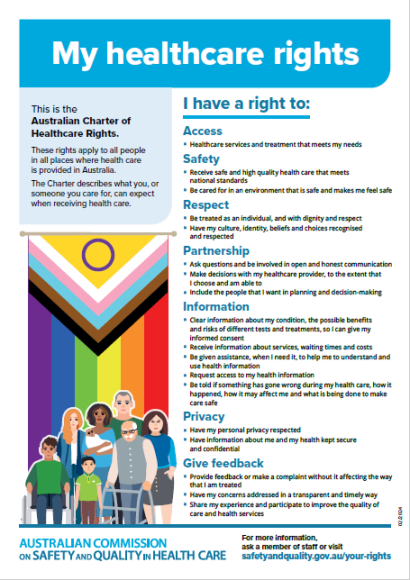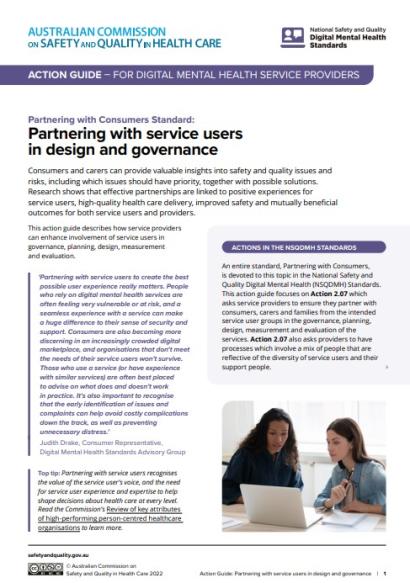The National Safety and Quality Health Service (NSQHS) Standards support the rights of people with intellectual disability to equitable health care. People with intellectual disability experience significant barriers in accessing safe and quality care evident through a higher mortality rate, increased incidence of preventable illness and more frequent hospital admissions.
In this section, you will find guidance and resources for implementation of the NSQHS Standards, to support healthcare rights and provision of inclusive health care.


